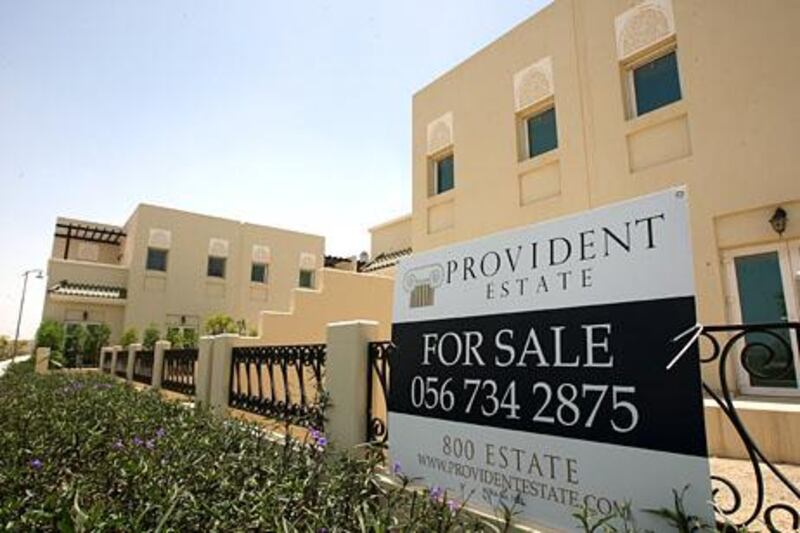The financial sector issued the most new loans in June since 2011, as a rebounding domestic economy encourages cash-rich lenders to extend credit to businesses and consumers.
Banks have now extended Dh48.3 billion in new loans during the past six months, outstripping the total lent in the 18 months before that.
Net loans and advances increased Dh16.3bn to Dh1.14 trillion during June alone, reflecting the highest rate of credit growth since September 2011, according to data from the Central Bank.
Deposits rose by Dh8.4bn during the month, the fastest rate in a quarter, having increased by 7.4 per cent this year.
Economists pointed to sustained improvements in the economy underpinning the growth in new lending, despite cooling economic activity in emerging markets in Asia.
"We'd started to see the beginnings of recovery in 2012, but not really in the UAE," Liz Martins, a senior economist at HSBC Middle East, said yesterday.
"It's taken a shift upwards recently."
The HSBC Purchasing Managers' Index has pointed to sustained expansion in the UAE economy since August , which has increased in strength during the past 12 months, with the most recent readings beating expectations of a summer lull.
With a reading of 54.5 for July, the UAE is "firmly in expansionary territory" and "one of the few emerging markets ... to be gaining momentum rather than losing steam," analysts from the HSBC wrote this month.
A PMI reading of more than 50 signals expansion; below 50 signals contraction.
The Central Bank also pointed to the fastest aggregate money supply growth since June 2011.
Stock values have surged during the past 18 months as an increase in tourist arrivals, a rebounding property market and a recovery in the banking sector helps to propel corporate profits.
However, a slowdown in emerging markets in the Asia-Pacific region is causing economists to anticipate economic activity will cool this year.
The IMF expects growth in the UAE to decelerate from 3.9 per cent last year to 3.1 per cent this year, it siad.
Still, recent signs of growing consumer indebtedness gave some cause for alarm, said Francisco Gomes, a professor of finance at London Business School.
"Periods of high growth in consumer lending, as we are seeing now, will almost always lead to temporary expansions [or inflation] but, as with any other demand shock, this is typically not sustainable," he said.
"If the expansion in household borrowing is driven by a combination of poor financial literacy and lack of regulation, then the new level of spending is not sustainable and households will find themselves needing to scale back their debt and/or default on loans."
Personal loans to residents grew by Dh9.8bn during the first five months of this year, according to the most recent data from the Central Bank.
The rate of consumer leverage grew at more than the rate recorded during the entire previous year.
Consumer credit figures for June are yet to be released.
However, compared with before the financial crisis, the banking sector today retains a much higher cushion of deposits to support their lending, with loans accounting for 91.4 per cent of the deposits in the financial system.
"We don't have any bubbles to burst," Ms Martins added.





